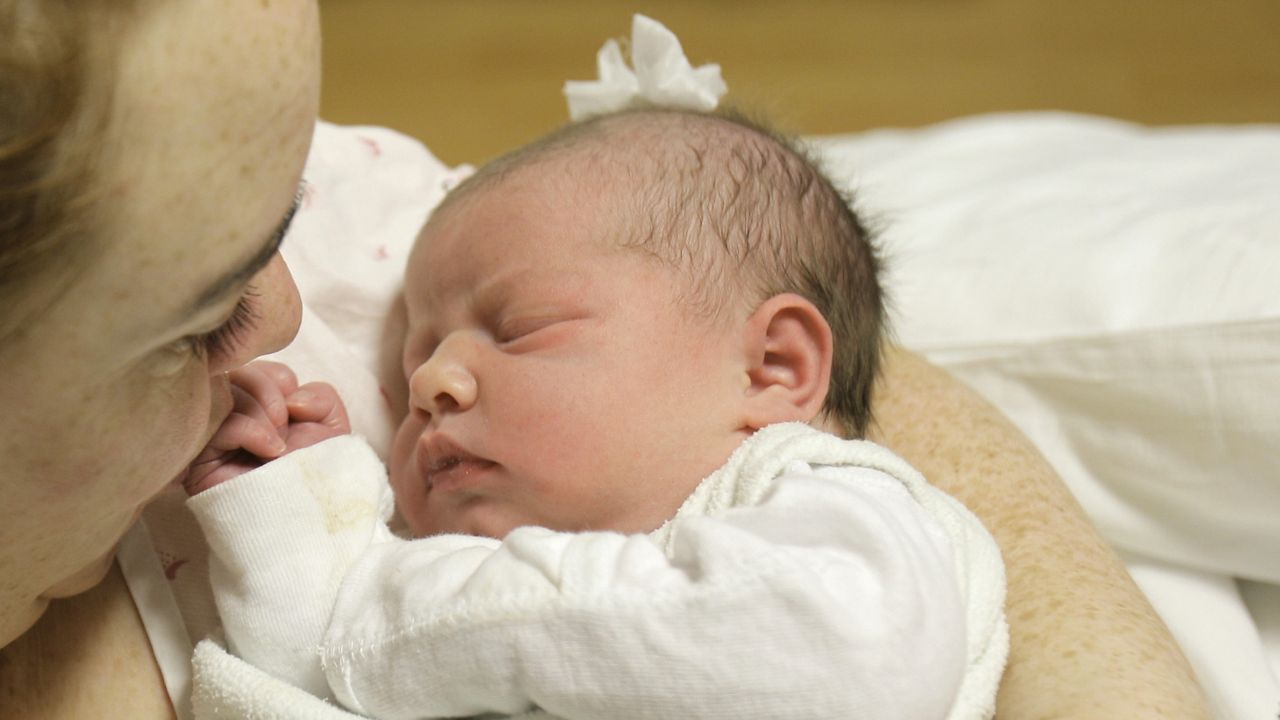Mothers who faced adversity at home as children or stressful events in the year leading up to the births of their babies are more likely us e drugs or alcohol postpartum, according to a new study by the Centers for Disease Control and Prevention.
What You Need To Know
- Mothers who faced adversity at home as children or stressful events in the year leading up to the births of their babies are more likely us e drugs or alcohol postpartum, according to a new CDC study
- About two-thirds of mothers surveyed who said they experienced six or more stressful life events in the year before giving birth said they had used drugs, tobacco or alcohol
- And 58% of those who experienced four adverse childhood events related to household dysfunction said they had used substances.
- The findings provide a better understanding of what leads to postpartum depression and how to try to prevent and treat it
The Pregnancy Risk Assessment Monitoring System surveyed more than 1,900 women from seven states with high opioid overdose death rates nine to 10 months after they gave birth. Overall, more than a quarter of them reported using drugs, tobacco or alcohol, while 5.9% said they used more than one substance.
About two-thirds of mothers who said they experienced six or more stressful life events – out of 14 examples listed by researchers – in the year before giving birth said they had used drugs, tobacco or alcohol. And 58% of those who experienced four adverse childhood events related to household dysfunction said they had used substances.
The findings provide a better understanding of what leads to postpartum depression and how to try to prevent and treat it.
About 9% of pregnancy-related deaths – which include up to a year postpartum – are by suicide, according to CDC. Mental health conditions – which include suicides, drug overdoses and drug poisonings – are an underlying cause in 23% of pregnancy-related deaths.
“These results … demonstrate that polysubstance use commonly co-occurs during the postpartum period with mental health conditions and a history of predelivery life stressors and adverse childhood experiences,” the authors of the new study wrote.
The rate of substance use was about twice as high for new mothers who reported experiencing depression and anxiety than those who did not, the study found. The disparity was even wider when it came to using multiple substances – 17% vs. 3.5% for those with current depression and 13% vs. 3% for anxiety.
The study’s authors say the findings give greater weight to the need for comprehensive prenatal and postpartum care, including screening and treatment for mental health and substance abuse. They also wrote that community support and education might help reduce the rate of illnesses and deaths related to postpartum substance use.
The American College of Obstetrics and Gynecologists recommends mothers visit their doctors within 12 weeks of giving birth for a comprehensive postpartum screening to assess whether they might have depression, anxiety or a substance us disorder.
The CDC says evidence-based strategies can prevent adverse childhood experiences and mitigate their immediate and long-term effects. Measures aimed at preventing such events include strengthening economic support to families, promoting social norms that protect against violence and adversity, enrolling children in preschool enrichment programs with family engagement, and promoting mentorship programs.



